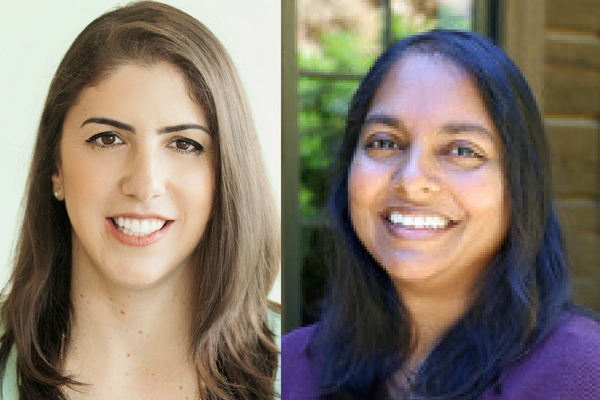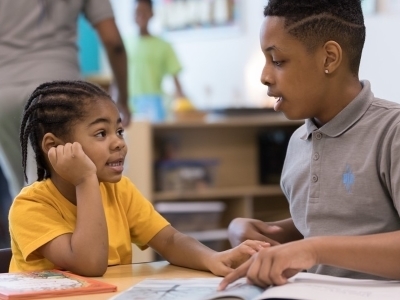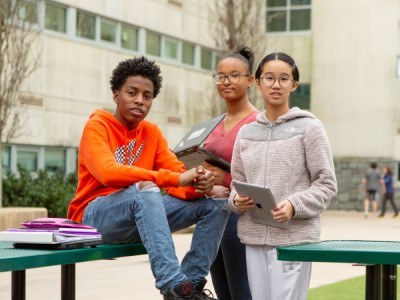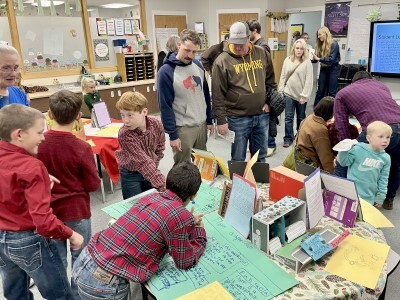Measuring Success of Innovative School Practices
Topics

Educators are rethinking the purposes, forms, and nature of assessment. Beyond testing mastery of traditional content knowledge—an essential task, but not nearly sufficient—educators are designing assessment for learning as an integral part of the learning process.
NGLC & The Learning Accelerator (TLA) support educators working to bring new ideas to schools and here’s how we will know if those ideas work.
Both of our organizations—NGLC and The Learning Accelerator (TLA)—support educators working to bring new ideas to schools. We may call these ideas different things such as “personalized learning”’ or “blended learning” but they are all premised on the belief that instruction should be tailored to the individual needs of each student rather than treating all students as a homogenous group. The schools we work with intentionally vary in approach; we believe that innovation means that no single learning model works for every school community.
In our roles, we are often asked—well, how do you know these ideas are working and making a difference? How do you know that what you are promoting isn’t just another fad that will quickly go the way of many other fads of education reform?
We take these questions seriously and both NGLC and TLA have worked hard to address the issues of impact and measuring success. We certainly don’t have all the answers but here is what we can share on the question of impact:
TLA’s Measurement Agenda for Blended Learning
Applying typical good research and measurement to educational innovation requires multiple stakeholders to take coordinated action, utilizing a breadth of knowledge and skills traditionally associated with very different roles and responsibilities. This is why TLA released our Measurement Agenda for Blended Learning. This agenda introduces the current state of evidence about blended learning and the challenge to all of us in measuring successful implementation. Further, it outlines the objectives—the unique and novel skills, knowledge, and activities—necessary for these stakeholders to build our evidence base and advance our collective understanding of success.
The objectives are organized into four parts which fit together like puzzle pieces to complete the picture of evidence about if, when, and how blended learning is effectively implemented.
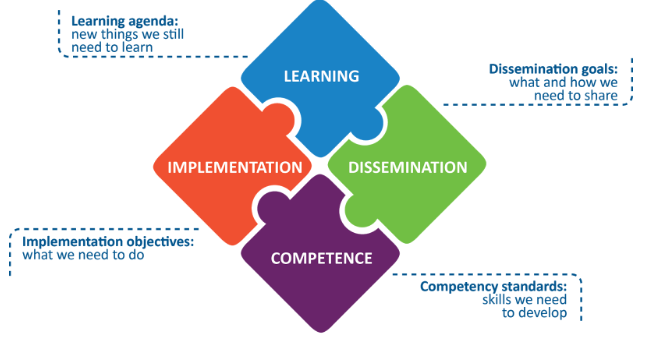
Researchers, educators, administrators and policymakers, funders, and other interested community members such as edtech developers can also access the objectives specifically relevant to their role. TLA's hope is that by publishing this measurement agenda, we will catalyze the measurement ecosystem, including schools and educators, to work together toward the mutual goal of all students receiving an outstanding education, enabling them to reach their potential. Let us know how you are using the measurement agenda in your work using the hashtag #BLMeasurement.
NGLC’s Measures That Matter Most
NGLC has just released a report of how its first 40+ national innovators think about success: Measures That Matter Most: How Do Next Generation Educators Measure Success?
In it, we highlight the work of schools that are innovating with personalizing learning and how they measure the success of their innovation. In the report, we shine a spotlight on eight schools and school networks that are diverse with respect to both the nature of their innovative ideas and the types of measurement tools they use to understand the impact of their ideas.
Get Involved
We encourage those who are interested in measurement to join our email lists, follow our blogs, and get involved in our organizations. We need your ideas on how to improve measurement of great innovations. TLA:
- Mailing List
- Blog
- Contact: Saro Mohammed, PhD: saro.mohammed@learningaccelerator.org, @EdResearchWorks
NGLC:
- Mailing List
- Blog
- Contact: Dalia Hochman: @DaliaHochman

